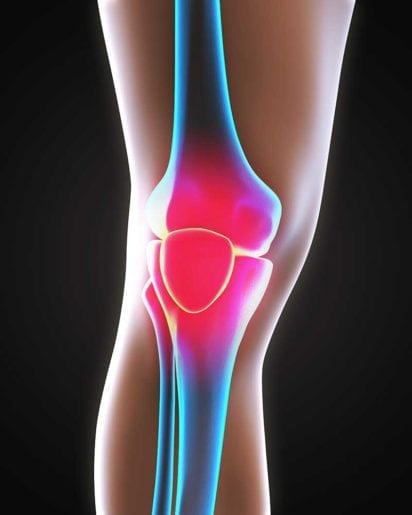Soy is one of the more controversial foods in the modern culinary world. People read conflicting headlines every day that imply soy is either very good or very bad for us. However, there is no conflict about the benefits of soy isoflavones. These unique phytoestrogens from soy protein are increasingly being found in research to have a variety of positive health effects. Even if you are not a fan of soy in general, you may want to add isoflavones to your diet to get some of the health benefits of this kind of protein.
What Are Soy Isoflavones?
Why do people in Asia and other areas of the world have lower risk of heart disease and other serious illnesses? Many doctors and researchers believe that the answer is their high dietary intake of soy. Soy has a variety of health benefits, ranging from hormonal balance to preventing cancer to improving cholesterol and blood pressure numbers. According to new studies, these may be almost entirely due to the action of soy protein compounds such as isoflavones in the human body.
Isoflavones are a type of phytoestrogen, a substance that mimics the effects of estrogen in the human body, found mainly in soybeans as well as other legumes. They have been linked to a variety of beneficial effects, including:
- decreasing the rate of breast and endometrial cancers
- improving bone density to help protect against osteoporosis
- reducing risk of prostate cancer
- helping to protect a healthy heart, with specific effects on cholesterol numbers and the risk of strokes and heart attack
- positive effects on age-related cognitive decline
- promoting good gastrointestinal health and optimal digestion
- reducing the symptoms of menopause
New studies suggest that these health benefits may be even more pronounced than previously believed. Soy isoflavones appear to make a meaningful difference in disease risk, often drastically reducing rates of certain diseases for many of the conditions listed here. This may be a major reason for the much higher rates of chronic disease in Western countries where soy and soy products are not a major part of the diet.
Inflammation: A Public Health Threat?
How can such a small component of soy protein have such a huge effect on a person’s health? Researchers believe that this is due to the inflammation-modulating and antioxidant effects of isoflavones. Oxidation and inflammation are the root of many diseases, so a protein that attacks these root causes will have beneficial effects in a variety of conditions.
In recent studies, isoflavones have been found to promote healthy cellular inflammatory processes. Only a small dose of soy protein is needed to get this effect; in recent studies, replacing just 12 percent of protein with soy was enough to get measurable health effects. This will benefit not just inflammatory diseases such as IBS and Crohn’s disease, but a variety of health issues. Caused by over-activity in the immune system, inflammation is believed to be the root cause of many serious diseases including heart disease and autoimmune disorders. Treating inflammation may reduce the risk of developing a wide range of diseases.
Second, isoflavones have been found in laboratories to act as antioxidants. They bind to and remove the dangerous oxygen radicals that are produced in cells as a result of different metabolic processes. If left unchecked, these radicals damage DNA and cell proteins, contributing to aging, cancer and a variety of negative health conditions. The antioxidant role of isoflavones is likely responsible for many of their health benefits.
Protecting against inflammation and oxidation are key to maintaining whole body health. This may be why people in Japan, China and other areas of high soy consumption have lower rates of serious diseases that threaten so many people in the West.
Getting More Isoflavones in Your Diet
 How much soy protein do you need in your daily diet to get these health benefits? Doctors recommend that people take 50 mg of soy protein a day to improve their cardiovascular risk, or 40 to 80 mg a day if taking it to treat menopause or other hormonal imbalances. Regardless of the amount your physician recommends, there are a variety of ways to add more isoflavones to your diet. Consider adding some of these tasty foods to your diet:
How much soy protein do you need in your daily diet to get these health benefits? Doctors recommend that people take 50 mg of soy protein a day to improve their cardiovascular risk, or 40 to 80 mg a day if taking it to treat menopause or other hormonal imbalances. Regardless of the amount your physician recommends, there are a variety of ways to add more isoflavones to your diet. Consider adding some of these tasty foods to your diet:
- soy dairy products such as soy milk, soy yogurt and soy cheese
- tofu
- tempeh and other soy-based meat substitutes
- soy nuts
- edamame
- miso, an ingredient in the popular miso soup
- natto and other products made with fermented soy beans
In addition, there are many supplements including capsules and protein shakes on the market that contain therapeutic levels of isoflavones and other beneficial components found in soy proteins. It is incredibly easy to add more of these nutritious proteins to your diet if you are interested in reaping the positive health effects.
Inflammation and oxidative stress appear to be the root causes of many of the most deadly and feared diseases faced by mankind. However, there are ways to naturally and safely prevent these conditions. Taking an isoflavone supplement may be a very important part of maintaining whole body health for a lifetime.
 Many people eat yogurt and other probiotic foods for GI tract benefits. However, new research suggests that this delicious food may also be good for the bones. Researchers looked at the bone density of older adults who had different lifestyle factors. Unsurprisingly, exercising, maintaining a healthy BMI and taking plenty of calcium and vitamin D were all linked to higher bone density. However, yogurt consumption was also linked to stronger bones. In fact, elderly people who ate yogurt on a daily or regular basis
Many people eat yogurt and other probiotic foods for GI tract benefits. However, new research suggests that this delicious food may also be good for the bones. Researchers looked at the bone density of older adults who had different lifestyle factors. Unsurprisingly, exercising, maintaining a healthy BMI and taking plenty of calcium and vitamin D were all linked to higher bone density. However, yogurt consumption was also linked to stronger bones. In fact, elderly people who ate yogurt on a daily or regular basis  While there are several medications available to treat elderly people with low bone density, doctors increasingly recommend that people instead work to build healthy and strong bone throughout their lifetimes. This is best done with natural lifestyle changes such as exercise, diet and supplements. Research suggests that the following healthy measures all can contribute to good bone density:
While there are several medications available to treat elderly people with low bone density, doctors increasingly recommend that people instead work to build healthy and strong bone throughout their lifetimes. This is best done with natural lifestyle changes such as exercise, diet and supplements. Research suggests that the following healthy measures all can contribute to good bone density: In addition, people with certain diets are at risk of a vitamin D deficiency because they do not take in enough vitamin D-rich foods. These at-risk diets include vegan diets as well as diets lacking dairy products, which are fortified with this vitamin.
In addition, people with certain diets are at risk of a vitamin D deficiency because they do not take in enough vitamin D-rich foods. These at-risk diets include vegan diets as well as diets lacking dairy products, which are fortified with this vitamin. What does this mean for people who are not high-performance athletes? You may be having trouble building muscle mass or suffering more soreness than usual because of not getting enough of this important vitamin. Even in people who had no other health effects, the lack of vitamin D manifested itself in a higher rate of muscle injuries. Taking vitamin D may be as important to building strong muscles as eating enough protein.
What does this mean for people who are not high-performance athletes? You may be having trouble building muscle mass or suffering more soreness than usual because of not getting enough of this important vitamin. Even in people who had no other health effects, the lack of vitamin D manifested itself in a higher rate of muscle injuries. Taking vitamin D may be as important to building strong muscles as eating enough protein. One of the most significant causes of death worldwide is acute respiratory illness. Even healthy people may fall critically ill from these infections, leaving them temporarily or permanently disabled and even threatening their lives. New research suggests that
One of the most significant causes of death worldwide is acute respiratory illness. Even healthy people may fall critically ill from these infections, leaving them temporarily or permanently disabled and even threatening their lives. New research suggests that  Celecoxib, a non-opiate anti-inflammatory pain medication, is the current preferred treatment for joint conditions such as osteoarthritis. Celecoxib reduces pain from inflammation of joints while slowing the joint destruction that can occur over time. However, even this first-line treatment does not always affect pain or slow joint damage. This medication is only effective in some patients, and even then it merely serves as a “Band-Aid” rather than helping to promote ongoing joint health. In addition, it can have serious side effects such as permanent liver damage. As a result, many people seek a natural option that can help soothe minor joint discomfort.
Celecoxib, a non-opiate anti-inflammatory pain medication, is the current preferred treatment for joint conditions such as osteoarthritis. Celecoxib reduces pain from inflammation of joints while slowing the joint destruction that can occur over time. However, even this first-line treatment does not always affect pain or slow joint damage. This medication is only effective in some patients, and even then it merely serves as a “Band-Aid” rather than helping to promote ongoing joint health. In addition, it can have serious side effects such as permanent liver damage. As a result, many people seek a natural option that can help soothe minor joint discomfort.